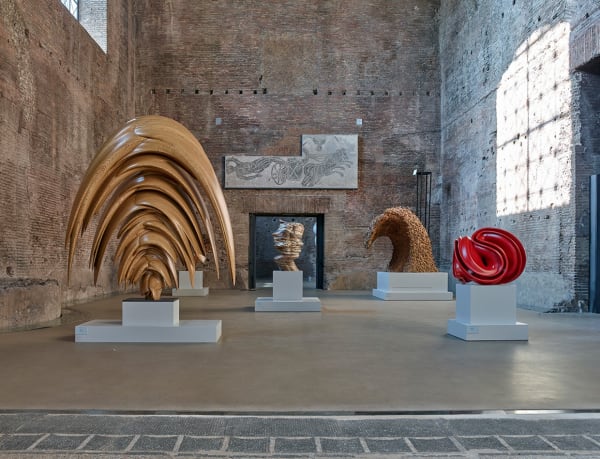Tony Cragg
“I like to create the internal structure of things – the human figure is an organic form, but has many geometries: our organs, bone structure, cells and molecules. Then I like to vary this structure till it has an emotional effect on me.”
--Tony Cragg
Tony Cragg is regarded as one of today’s most important sculptors, consistently exploring new ways people relate to the material world. He works with a limitless range of materials and forms, seeing everyday objects as “fossilized keys” that connect the past to our present. In his early stacked and arranged object works, Cragg blurred the lines between natural and manmade environments, assembling parts into outlines of familiar shapes to show how the whole relates to its fragments.
For Cragg, sculpture is a way to examine how forms and materials shape our thoughts and feelings. This is central to his two major series, Early Forms and Rational Beings. In Early Forms, he reimagines familiar objects like containers into new sculptural forms that provoke fresh emotional responses. In Rational Beings, he explores the tension between the precise geometry behind complex organic forms and the emotional reactions they evoke, with the human figure as a key example. Rather than copying nature, Cragg’s work questions why things appear as they do and how we come to be as we are.
Born in Liverpool in 1949, Cragg has lived and worked in Wuppertal, Germany since 1977. He studied at Wimbledon School of Art and earned his MA from the Royal College of Art, London. His work has been featured in major museums worldwide, including recent exhibitions at Castle Howard, Kunstpalast Düsseldorf, and the Albertina in Vienna. He represented Britain at the Venice Biennale in 1988, the same year he won the Turner Prize, and has held teaching positions in Paris and Düsseldorf. Cragg has received numerous honors, including the Praemium Imperiale and a knighthood in 2016.





